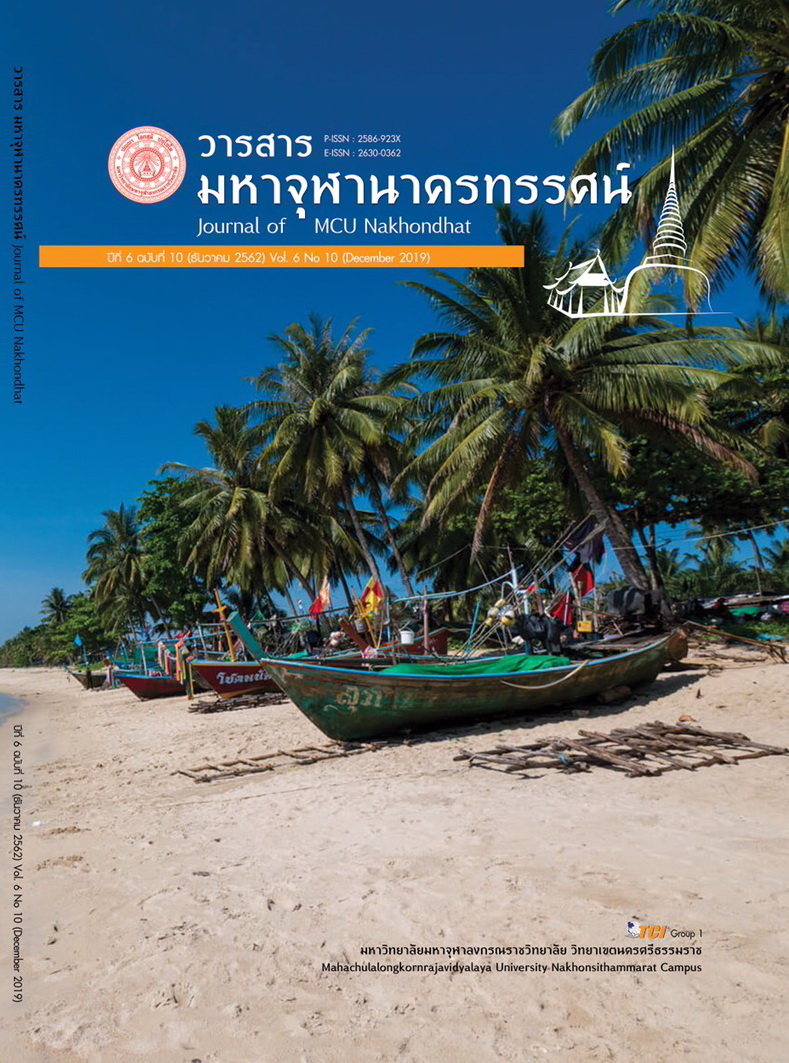THE EXAMINING AND TRUTH FINDING IN OBJECTS COLLECTED BY AN INQUIRY OFFICIAL
Main Article Content
Abstract
The purposes of this article are to 1) study background of problems, concepts and theories related to examining and truth finding in objects collected from the case by an inquiry official in Thailand and study concepts and theories associated with examining and truth finding in objects collected from the case by an inquiry official in some foreign countries, 2) analyze legal measures in examining and truth finding in objects collected from the case by an inquiry official in Thailand for being compared with that in some foreign countries. The findings are used as suggestions for enhancing effectiveness of the criminal procedural law of Thailand.
The findings revealed that
- The criminal justice system in Thailand was the justice system in the civil law similar to the Germany. It was necessary to initiate the process of the truth finding of case objects in the pre-trial stage. An inquiry official and a prosecutor power needed to work together to examine the truth of the case objects in criminal prosecution. In practice, Thailand divided the work in examining the truth of case objects in criminal prosecution similar to countries in the common law. In fact, Thailand let investigating power to an inquiry official and separate the power related to court filing to be under a public prosecutor similar to Australia.
- Under section 131 and 138 of the criminal procedural code, an inquiry official was addressed to perform the truth finding process in case objects thoroughly. However, an inquiry official did not examine the truth of case objects as indicated in the sections. In essence, that process was ended without closely examined by a public prosecutor, affecting the stage where addressing sort of action in charging an alleged. In this point, when comparing with some foreign countries, it was found that there were diverse in term of laws. Some foreign countries addressed that a public prosecutor was in charge of investigating together with an inquiry official or a policeman since pre-trial stage, initiating cooperation in examining the truth of case objects in pre-trial stage and the truth of case objects was believed to be completely found.
Article Details
How to Cite
ดลเจิม อ., ชุมวิสูตร ส., รักษ์ปวงชน ว., เทพทอง ว., & บุณยธนะ จ. (2020). THE EXAMINING AND TRUTH FINDING IN OBJECTS COLLECTED BY AN INQUIRY OFFICIAL. Journal of MCU Nakhondhat, 6(10), 4720–4727. Retrieved from https://so03.tci-thaijo.org/index.php/JMND/article/view/227506
Section
Research Articles
References
กรมราชทัณฑ์. (2562). รายงานสถิติผู้ต้องราชทัณฑ์ทั่วประเทศ. เรียกใช้เมื่อ 18 พฤศจิกายน 2562 จาก www.correct.go.th/rt103pdf/report_result.php?date=2019-04-01&report=
คณิต ณ นคร. (2561). กฎหมายวิธีพิจารณาความอาญา. กรุงเทพมหานคร: มหาลัยธุรกิจบัณฑิตย์.
ธานี วรภัทร์. (2558). หลักกฎหมายวิธีพิจารณาความอาญา. กรุงเทพมหานคร: วิญญูชน.
ประพันธ์ นัยโกวิท. (2561). การอำนวยความยุติธรรมในคดีอาญาโดยพนักงานอัยการ. บทบัณฑิตย์, 52(4),84-85.
วีระศักดิ์ แสงสารพันธ์. (2553). ประมวลสาระชุดวิชาการบริหารงานยุติธรรมเปรียบเทียบชั้นสูง. นนทบุรี: สำนักพิมมหาวิทยาลัยสุโขทัยธรรมาธิราช.
โสภณ รัตนากร. (2531). รวมคำบรรยายหลักวิชาชีพพนักงานกฎหมาย. กรุงเทพมหานคร: มหาวิทยาลัยธรรมศาสตร์.
คณิต ณ นคร. (2561). กฎหมายวิธีพิจารณาความอาญา. กรุงเทพมหานคร: มหาลัยธุรกิจบัณฑิตย์.
ธานี วรภัทร์. (2558). หลักกฎหมายวิธีพิจารณาความอาญา. กรุงเทพมหานคร: วิญญูชน.
ประพันธ์ นัยโกวิท. (2561). การอำนวยความยุติธรรมในคดีอาญาโดยพนักงานอัยการ. บทบัณฑิตย์, 52(4),84-85.
วีระศักดิ์ แสงสารพันธ์. (2553). ประมวลสาระชุดวิชาการบริหารงานยุติธรรมเปรียบเทียบชั้นสูง. นนทบุรี: สำนักพิมมหาวิทยาลัยสุโขทัยธรรมาธิราช.
โสภณ รัตนากร. (2531). รวมคำบรรยายหลักวิชาชีพพนักงานกฎหมาย. กรุงเทพมหานคร: มหาวิทยาลัยธรรมศาสตร์.

